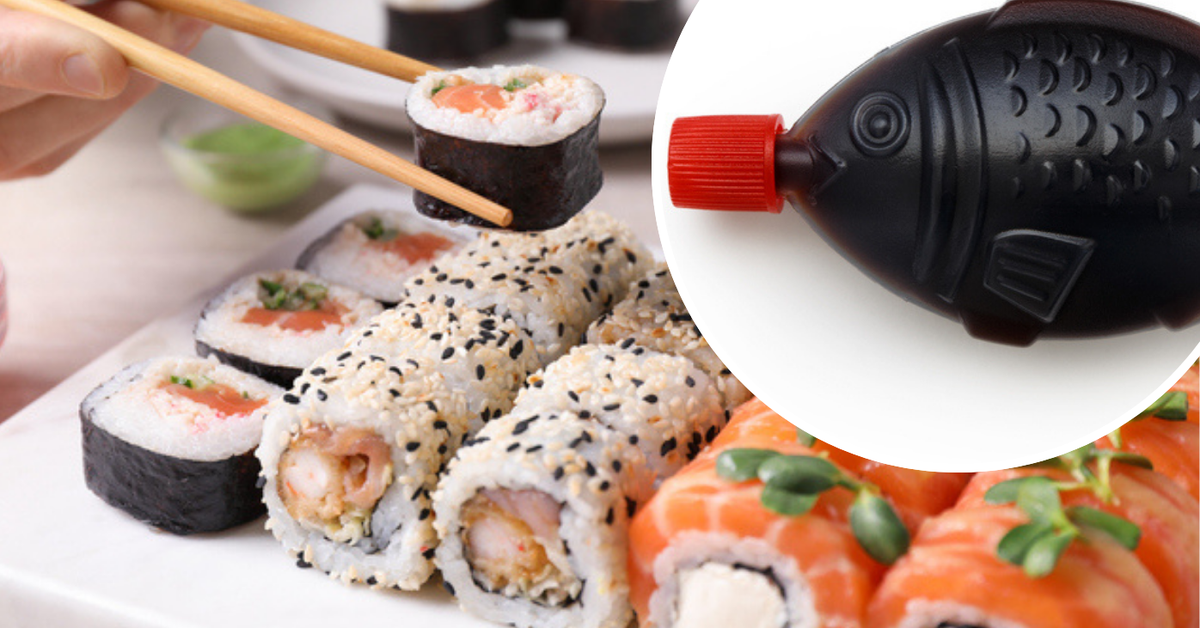South Australia will become the first state to ban soy sauce fish containers in a matter of weeks.
The containers, as well as plastic straws and cutlery attached to food or drinks, non-compostable fruit and vegetable stickers and prepackaged cups and bowls containing meals, will be phased out from September 1.
The items will join a wide list of banned single-use plastics like grocery bags, straws, cutlery, stirrers, cups, bowls, plates, containers, cotton buds, pizza savers, confetti, balloon sticks and ties and food bag tags.
 South Australia will become the first state to ban soy sauce fish containers in a matter of weeks. (Getty Images/iStockphoto)
South Australia will become the first state to ban soy sauce fish containers in a matter of weeks. (Getty Images/iStockphoto)
Environment Minister and Deputy Premier Susan Close said the use of soy sauce fish containers was “undeniably high” given their pervasiveness in sushi and takeaway culture.
“Each fish-shaped container is used for just seconds, yet remains in the environment for decades or centuries if littered,” she said.
“Their small size means they’re easily dropped, blown away, or washed into drains, making them a frequent component of beach and street litter.
”In kerbside recycling, they’re too small to be captured by sorting machinery and often end up in landfill or as fugitive plastic in the environment.
“If littered, they can break into microplastics, which persist in soils, waterways, and oceans.”
Close added that the soy sauce fish containers were a “convenience packaging” item that can be replaced with more sustainable solutions.
 Nina Wootton, a marine scientist specialising in microplastics and plastic waste at the University of Adelaide. (University of Adelaide)
Nina Wootton, a marine scientist specialising in microplastics and plastic waste at the University of Adelaide. (University of Adelaide)
Nina Wootton, a marine scientist specialising in microplastics and plastic waste at the University of Adelaide, said the soy sauce fish containers turn up in sums on beaches.
“I do find them a lot, often the whole actual sushi soy sauce little mini fish. They’re common,” she said.
Wootton admitted that she struggles to minimise her own single-use plastic waste at sushi restaurants, but said it was impossible to avoid entirely.
”Even before you ask if you want the soy sauce, they’ve already started putting it in there,” she said.
“There is still so many single-use plastics I use in my everyday life, even with being really conscious, so anything where the decision is taken out of our control, I think, is really good.”
 South Australia is the first state to ban soy sauce fish containers. (Getty)
South Australia is the first state to ban soy sauce fish containers. (Getty)
South Australia is the first state to ban soy sauce fish containers, with two other states considering following suit.
NSW is currently considering a proposal to phase out plastic sauce packages, such as soy sauce containers, and require them to be recyclable by 2030.
The government expects to make an announcement on this in the coming months.
Tasmania is also considering phasing out the same containers, but has not yet developed any draft legislation or undertaken consultation.
Queensland has ruled out any more single-use plastic bans beyond the straws, stirrers, plates and unenclosed bowls, cutlery, takeaway food containers, cotton buds, peanut packaging and microbeads already prohibited.
Western Australia is expanding its single-use plastic ban to include non-compostable plastic barrier bags for fruit and vegetables, unpackaged meat, seafood and dairy products on September 1.
The remaining states and territories are making no changes at this stage to their current single-use plastic bans.
 Australia is pushing to finalise a legally-binding global plastics treaty with more than 175 countries in Geneva. (Getty Images/iStockphoto)
Australia is pushing to finalise a legally-binding global plastics treaty with more than 175 countries in Geneva. (Getty Images/iStockphoto)
Australia is one of more than 175 countries attempting to finalise a legally-binding global plastics treaty in Geneva, as plastic production and consumption around the world is set to triple by 2060
“We are determined to push for an effective and meaningful global treaty to achieve our goal of ending plastic pollution by 2040,” Federal Environment Minister Murray Watt said.
“These negotiations are a critical step toward preserving the world’s ocean and environment for future generations, and we strongly believe in global action.”

